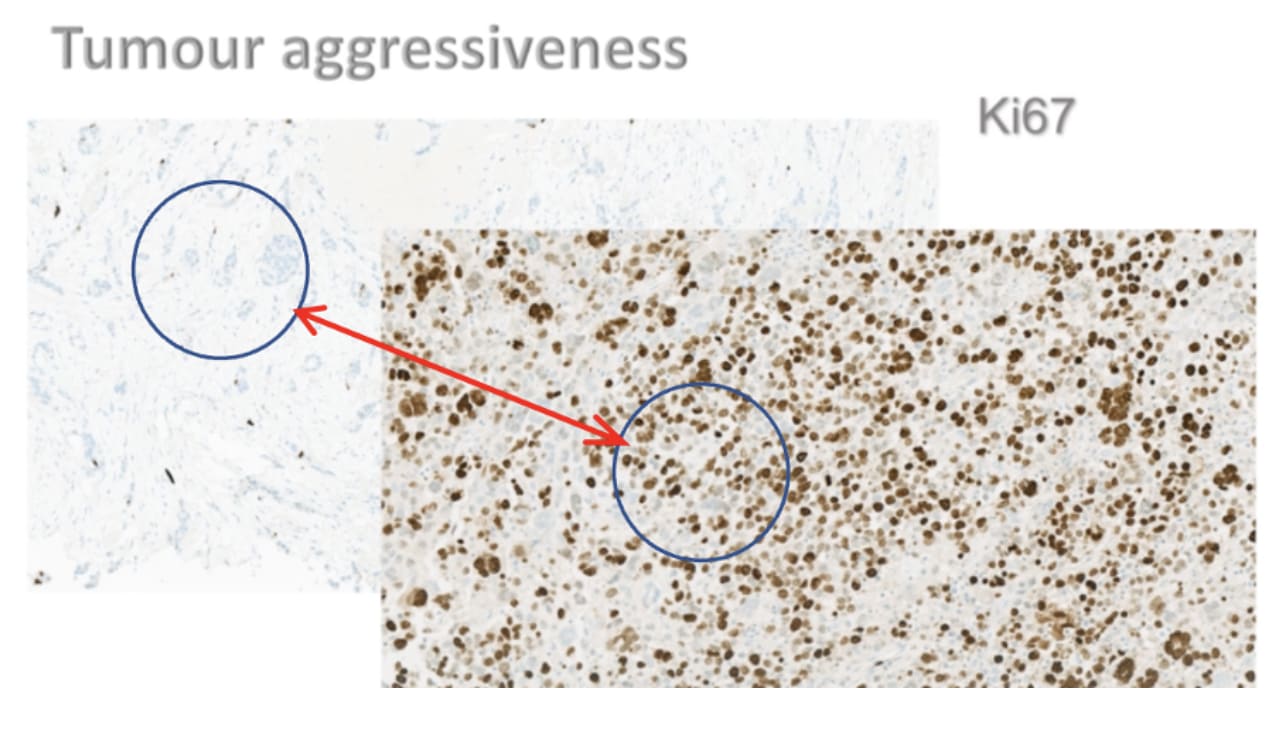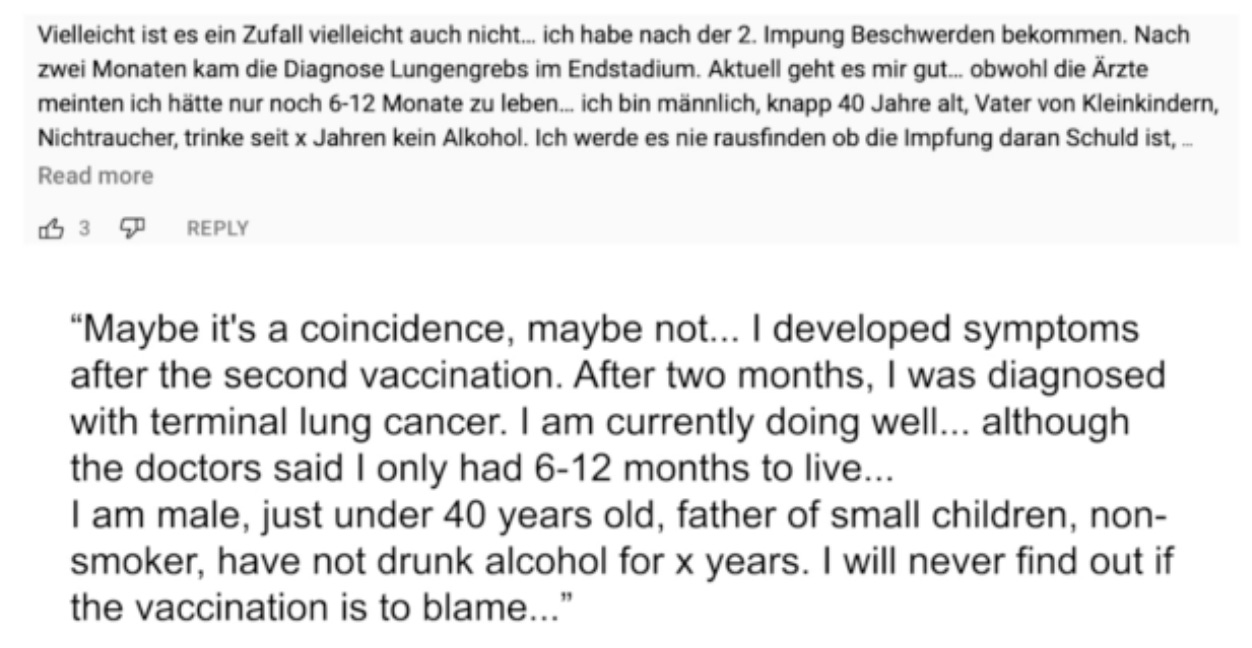
Pfizer CEO Albert Bourla announced on Monday the pharmaceutical giant will acquire Seagen’s cancer therapy for $43 billion and deliver it “at a scale that has not been seen before.”
Cancer is one of the biggest therapeutic areas, and right now, 1 in 3 people in the world are going to have cancer in their lifetime,” Bourla told CNBC in an interview. Seagen has one of the greatest technologies to battle cancer. “I would say this is something like the mRNA for vaccines [but] for cancer.”
Seagen is the developer of antibody-drug conjugates (ADCs)—a medicine designed to kill cancer cells and spare healthy ones. ADCs use antibodies to deliver small molecule drugs directly to a tumor site, which the company claims “may” reduce side effects and offer greater efficacy.
In COVID vaccines, mRNA is used to trick the immune system into developing antibodies against the virus, Bourla said. ADCs “are turbo charge guided missiles that are attacking the cancer cells and can make a huge difference.”
Pfizer expects Seagen will generate $2.2 billion in revenue this year and more than $10 billion in risk-adjusted sales by 2030, “with potential for significant growth” beyond that year.
The deal comes as Pfizer plans for a decline in sales of its COVID-19 vaccine and antiviral pill Paxlovid—which brought in a combined 2022 revenue of $100 billion—and will help the company shift its focus to oncology, a field the company “believes will be the industry’s biggest growth market.”
Last year, Pfizer’s oncology division raked in $12.1 billion with 24 approved cancer treatments.
Scientists see unusual turbo cancers in COVID-vaccinated patients
Pfizer is investing in the cancer industry, just as it did with blood clotting drugs, as cancer rates are skyrocketing in the recently vaccinated. Not only is the pharma giant making money off its COVID vaccine, it’s also making money off its vaccine’s side effects.
Turbo cancer is the terminology coined to describe the aggressive and usual cancers occurring in the younger 30 to 50-year-old vaccinated population.
Dr. Ute Krüger, a pathologist, senior physician, and researcher conducting breast cancer research at Lund University, evaluated 1,500 breast cancer cases for average age, tumor size, and degree of malignancy.
Following the widespread distribution of COVID-19 vaccines containing spike protein, Krüger noticed several changes:
- Cancer in younger patients 30- to 50 years old,
- Aggressive and fast-growing tumors,
- Larger tumors,
- Diverse tumors (heterogeneity),
- More frequent multifocal and bilateral tumor growths,
- Co-temporal onset of more than one type of cancer,
- Accelerated growths of benign tumors that possibly signify malignant transformation, and
- Inflammation as a possible source of breast pain.
In the Fall of 2021, Krüger witnessed an increase in samples from younger patients and noticed tumors were larger and growing more aggressively. More than four centimeters was not uncommon, but she was seeing tumors up to 16 centimeters in size in the breast, with an increased frequency of multifocal tumor growth and bilateral growth.
The left frame below is a picture of a tumor with low aggressiveness. The image on the right is of the aggressive tumors she began seeing after the rollout of COVID vaccines.

Krüger enlisted colleagues to help her prove or disprove her hypothesis that turbo cancer was occurring after COVID vaccination, but received little response.
Krüger says she has also seen an increase in recurrent cancers that were “more or less considered cured” relatively soon after COVID-19 vaccination.
“These are patients who have had breast cancer before and were more or less considered cured. It can be carcinoma from 20 years ago,” she said. “Relatively soon after the vaccination against COVID-19, the tumor growth explodes, and there is a pronounced spread of the tumor in the body, and some of the patients die within a few months.”
Krüger gave an example of an 80-year-old woman with a sectoral resection seven years ago. Three months after COVID vaccination, she detected a 55-millimeter fast-growing tumor in her breast.
“At the same time, severe skin metastases were found in the breast skin of the same site,” Krüger added. “This is also very unusual for a patient with a recurrence in the breast and skin metastasis at the same time.”
Krüger said she is also noticing different patterns in tumors. For example, she described a 70-year-old woman diagnosed with a relatively slow-growing breast carcinoma that had metastasized to her urinary bladder, intestinal mucosa, bones, and liver over three years—but her body was “in a certain balance.”
Shortly after receiving a COVID vaccine, tumor growth in the liver exploded, and the patient died within a month. The doctor who sent Krüger the liver sample said it was unusual the cancer grew extremely fast while tumors in surrounding sites did not.
Krüger, after an interview on turbo cancer and COVID vaccination, received more than 1,300 comments about the onset of turbo cancers.

Krüger is not the only physician to notice an increase in cancer following the COVID vaccine’s rollout. In an interview with the Epoch Times, pathologist Dr. Ryan Cole said he and colleagues are seeing uncommon cancers in unusual age groups at higher rates.
“This is now being confirmed by certain federal data sets that are being analyzed,”
Cole said. “The cancer trends are markedly up, and that’s from the CDC’s own trend data sets.”
Cole said there seems to be a dose-accumulated effect based on what he is seeing. “The more spike you get, the longer your body keeps making it, and the more adversely many systems are affected,” he said.

